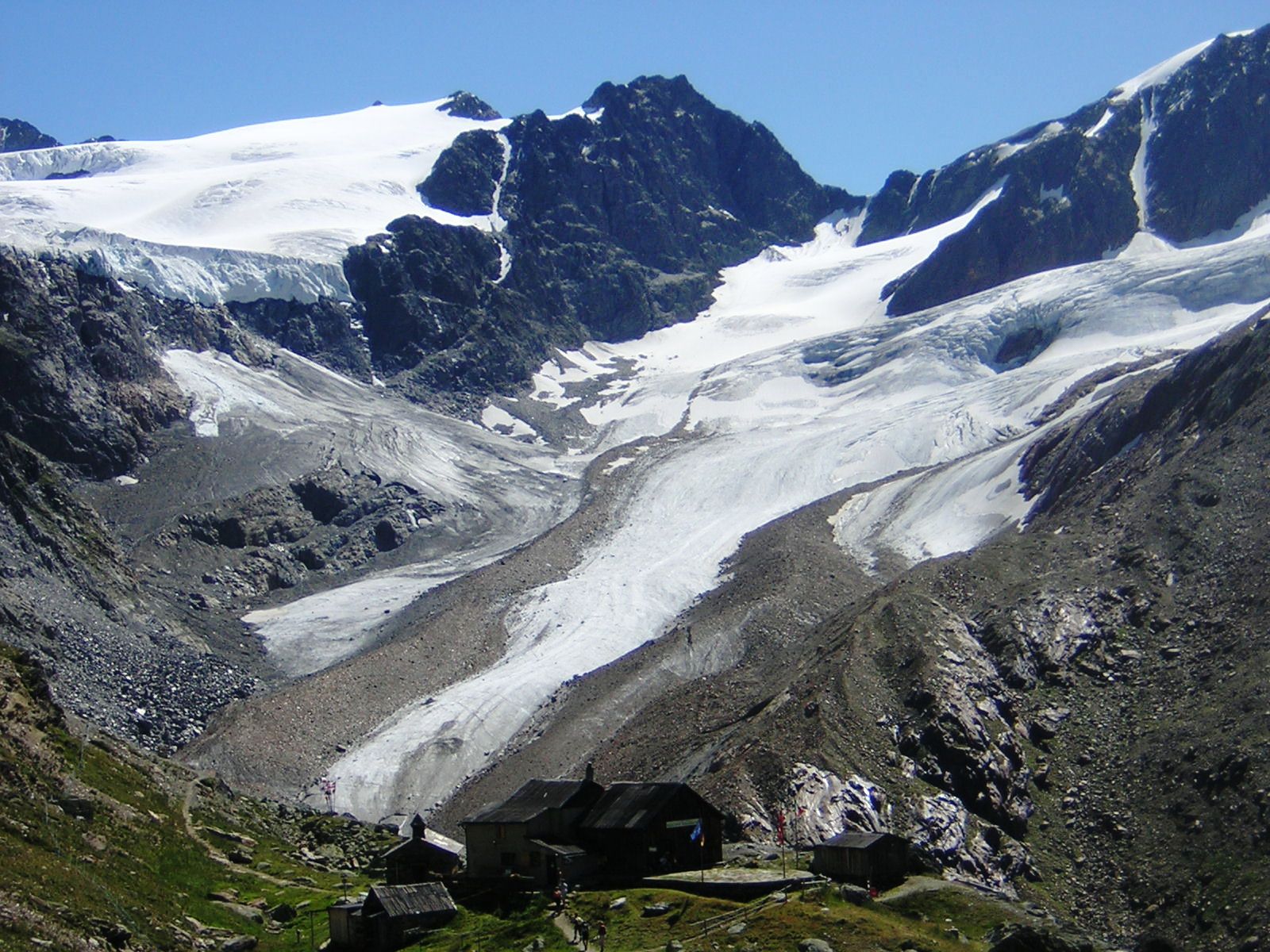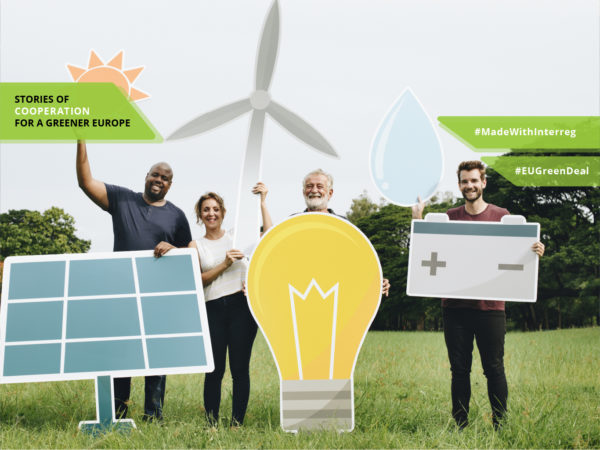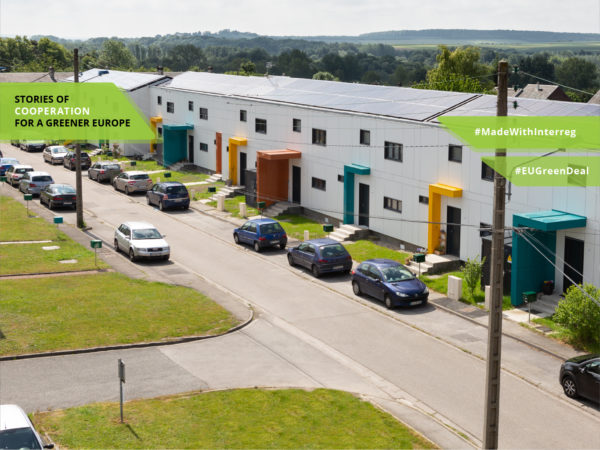The European Green Deal going local in the Alpine Space
According to European Commission president Ursula van der Leyen, the European Green Deal is Europe's man on the moon moment. Several projects funded by the Interreg Alpine Space programme are already contributing directly to the Green Deal by finding sustainable solutions for the Alpine mobility, industry and energy sectors.
In September 2020, parts of the French and Italian Alpine regions were affected by heavy flooding due to torrential rain. In just 24 hours, the regions experienced the equivalent of nearly four months of rain. Extreme weather events like these are likely to increase over the next decades. The effects of climate change are more acute in the Alps than in other European regions. Here the temperatures have risen by 2°C in the past hundred years. This not only leads to more floods, but also to more dry periods due to glacier retreat and lower summer precipitation. Europe’s “water tower”, as the Alps are often called because they supply 40% of Europe’s freshwater, is shaking.
93% of Europeans consider climate change as a serious problem. The European Commission responded to this and launched the European Green Deal in September 2019. Its main goal is that in 30 years – by 2050 – Europe will be the first climate-neutral continent. The new measures should cover all economic sectors, among others, transport, industry and energy.
For the EU to make the Green Deal real, local, regional and national actors are needed to implement the broad changes advocated. The European Committee of the Regions recently announced that climate action starts in European cities and regions, “where the European Green Deal needs to be translated into real concrete projects”. Several ongoing or recently completed projects funded by the Interreg Alpine Space programme contribute to delivering the Green Deal locally in the Alpine Space. They play a big role in moving Europe gradually to climate neutrality.
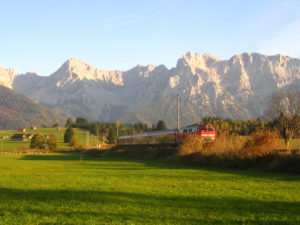
Moving across the mountains sustainably
The Green Deal aims to reduce emissions from traffic by 90%. The transport sector is responsible for 25% of the current EU emissions. Hence, it is important to find cleaner alternatives for the future. With growing passenger and freight traffic, Alpine countries are facing common social, ecological and economic challenges regarding mobility. Some Alpine Space projects are currently addressing the future development of sustainable mobility.
LinkingAlps is working on making it easier for users to access sustainable transport options. The car is still the most widely used mode of transport. One reason for this is that sustainable modes of transport are often neither easily accessible nor sufficiently developed. To change this, LinkingAlps is creating a standardized exchange service of travel information for the Alpine region. Currently, trips are planned based on each region’s information system, which can be difficult to navigate. The harmonization of travel services makes it more attractive for passengers to switch to public transport.
The success of sustainable mobility depends not only on its accessibility, but also requires a shift in the behaviour and awareness of passengers. The projects SaMBa and MELINDA respond to this by examining how people can be motivated to switch to sustainable means of transport. SaMBa focuses on doing so through “soft measures”. With the help of a tracking app (similar to fitness apps), reward and pricing principles should motivate to change mobility habits. Also with the help of an app, MELINDA aims to promote low-carbon mobility behaviours. By suggesting alternative modes of transport, people should get encouraged to make greater use of sustainable mobility options.
The efforts of the three projects might lead to gradually increasing numbers of Alpine citizens leaving their car in the garage and switching to bikes, trains or buses instead.
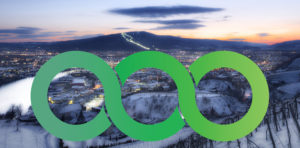
Circular Economy: reduce, reuse, repair, recycle!
In mid-March 2020, the European Commission presented its plans for a new industrial policy, which is at the heart of the Green Deal. One of the main goals is to embed circularity across the economy to reduce both carbon and material footprint. The transition is currently neither fast enough nor uniform and it will take a great deal of effort to make the circular economy the new norm. Two Alpine Space projects are already contributing directly to this.
GREENCYCLE developed a circular economy system for partner cities in the Alpine Space intending to harmonize their existing low-carbon strategies. Based on this, the project developed a toolbox for the implementation of circular economy strategies for other regions and cities to benefit from the best practices. It has also established a transnational cooperation platform and a manifesto for Alpine Space stakeholders, businesses and institutions for a transition from a linear to a circular economy.
In the same way, Circular4.0 aims to accelerate the transition to a circular economy in the Alpine Space, paying attention to the region’s peculiarities. It focuses on advancing the digitalisation process in small and medium enterprises facilitating their transition to a circular economy. The project’s objectives contribute directly to the implementation of the EU circular economy action plan in the Alpine Space highlighting that digitalisation and circular economy must go hand in hand.
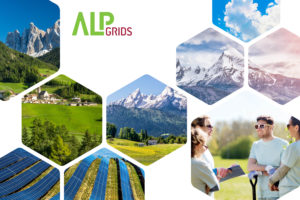
Clean energy solutions to decarbonise the Alpine Space
Improving energy efficiency also plays a crucial part in achieving the set environmental targets for 2050. 75% of the current EU’s greenhouse gas emissions stem from the production and consumption of energy – but how can energy efficiency be improved? The Alpine Space projects AlpGrids and BB-Clean are one step ahead in developing solutions.
AlpGrids aims to improve the sustainability and resilience of the Alpine energy supply, which is fragile due to natural hazards. By implementing microgrids (small energy networks that work independently of the main network) not only can emissions be significantly reduced, but small communities can also become independent of the main networks. Implementing mircrogrids can thus foster low-carbon, energy self-sufficient communities, while offering lower costs for consumers. The main objective of the project is to create a favorable environment to promote the use of microgrids through the development of business and governance model for Alpine microgrids.
Similarly, BB-Clean aims to improve energy efficiency, focusing on the efficient use of biomass in domestic heating systems. Biomass is a local and affordable renewable energy source and burning it does not cause fossil carbon emissions. However, often unknown, the misuse of biomass burning leads to particulate matter emissions. To reduce this, the project partners develop transnational strategies to use biomass more efficiently and sustainably, ultimately leading to greater energy efficiency, energy savings and a reduction of emissions. To achieve the Green Deal goals, innovative clean energy solutions like these need to be developed on a wide scale and the two Alpine Space projects are taking the first steps.
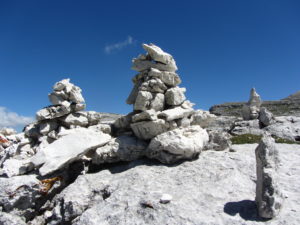
The added value of regional transnational cooperation
Developing and enhancing alternative mobility options, industry models and clean energy solutions are good ways forward towards a more sustainable Alpine Space. However, it is the transnational cooperation between diverse project partners, which additionally enhances its positive effects.
By pooling ideas and resources, as well as exchanging best practices, partners from different nations can benefit from the project results and inspire policy-makers. This does not only increase efficiency but also increases the awareness that all Alpine nations share the same challenges. Over the next programme period, from 2021 to 2027, new project partners will be able to build on top of the already achieved results and thus achieve long-term results.
We are proud that Alpine Space projects contribute to achieving the goals of the Green Deal locally and to increasing its visibility on the regional level – and ultimately, to making the Green Deal real.
